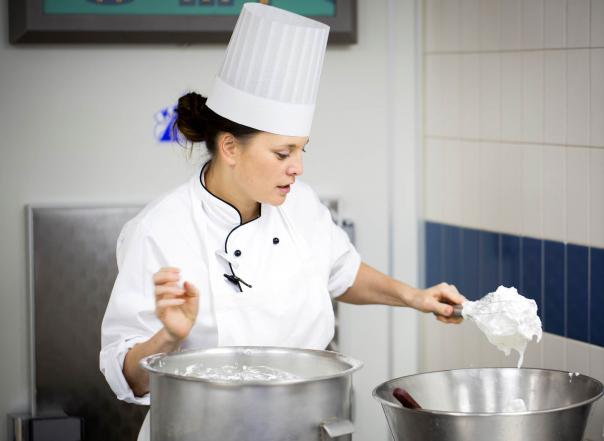Less than one in four chefs in the UK is female, despite “biggest rise in the past five years”

In its analysis of the last five years of employment data, the Office of National Statistics found that the total number of chefs in the UK has risen by 11.3% in the last year, of which male chefs rose by 5.9% and women by 34% - making it the biggest single rise in the past five years.
Despite the fact that the “number of female chefs is outpacing the rise in the number of chefs working in hospitality,” still less than one in four (23.5%) is female, and only a third of women work full time compared to only a third of men who work part time. That said, if the rate of growth remains consistent, female chefs could potentially outnumber male chefs by 2022, the data found.
Craig Allen, founder and director of hospitality recruiter The Change Group, who provided ONS employment data from the past 12 months, said: “It is great to see that there are more female chefs and that this figure has leapt up in the past year.
“This is certainly a trend that we are seeing in the people that we are placing at London’s top establishments. The hospitality sector wants more female chefs and we are delighted to see so many of London’s top establishments taking steps to recruit more women into their kitchens.”
However, there’s still a long way to go in balancing out the number of men and women in ‘elementary services occupations,’ whereby “women dramatically and consistently outnumber men:"
- Three out of five kitchen and catering assistants have been women over the past five years
- Seven out of ten waiting staff are also female
- Men dominate senior managerial roles as well as ownership of restaurants and catering establishments
- Over the past five years, 58% of senior restaurant and catering staff have been men
Allen commented: “It is worrying that the majority of senior roles are being taken by men, and also that so many women are working part time. On the one hand, this means that they have more flexibility, which could encourage more women to work in hospitality. Equally, it could also affect the opportunities open to women, as many senior roles are full time.
“This means that despite the hard numbers, arguably the overall impact which women are having in the hospitality sector is smaller, because so many are working in junior roles and part time.
“The surge in the number of female chefs joining the industry over the past 12 months could indicate that they are an important source of talent at a time which is vital as the hospitality sector continues to face a dire talent shortage. We may see more women rise to the fore, so the future in terms of employment could be brighter than anticipated for the industry.”
